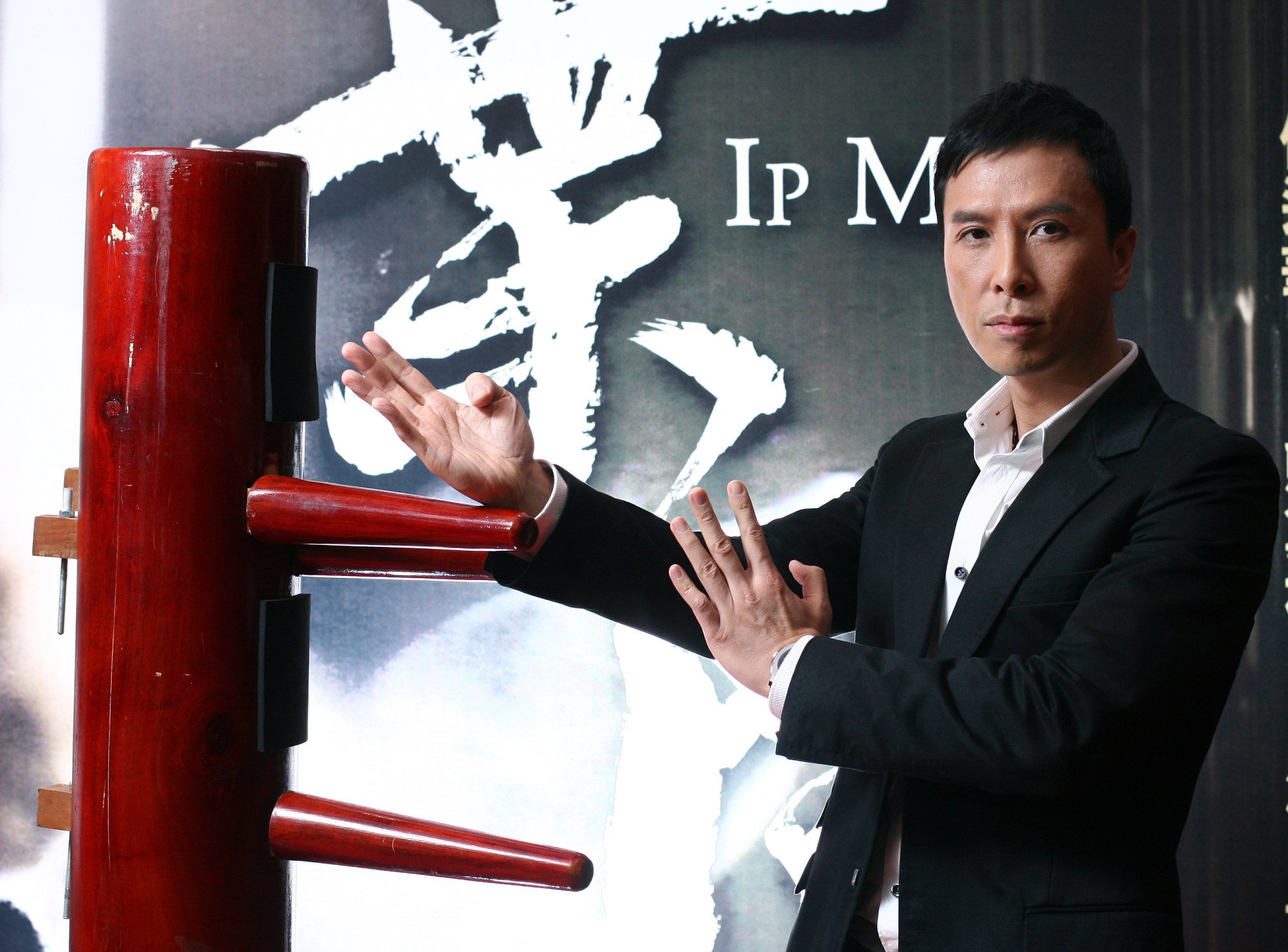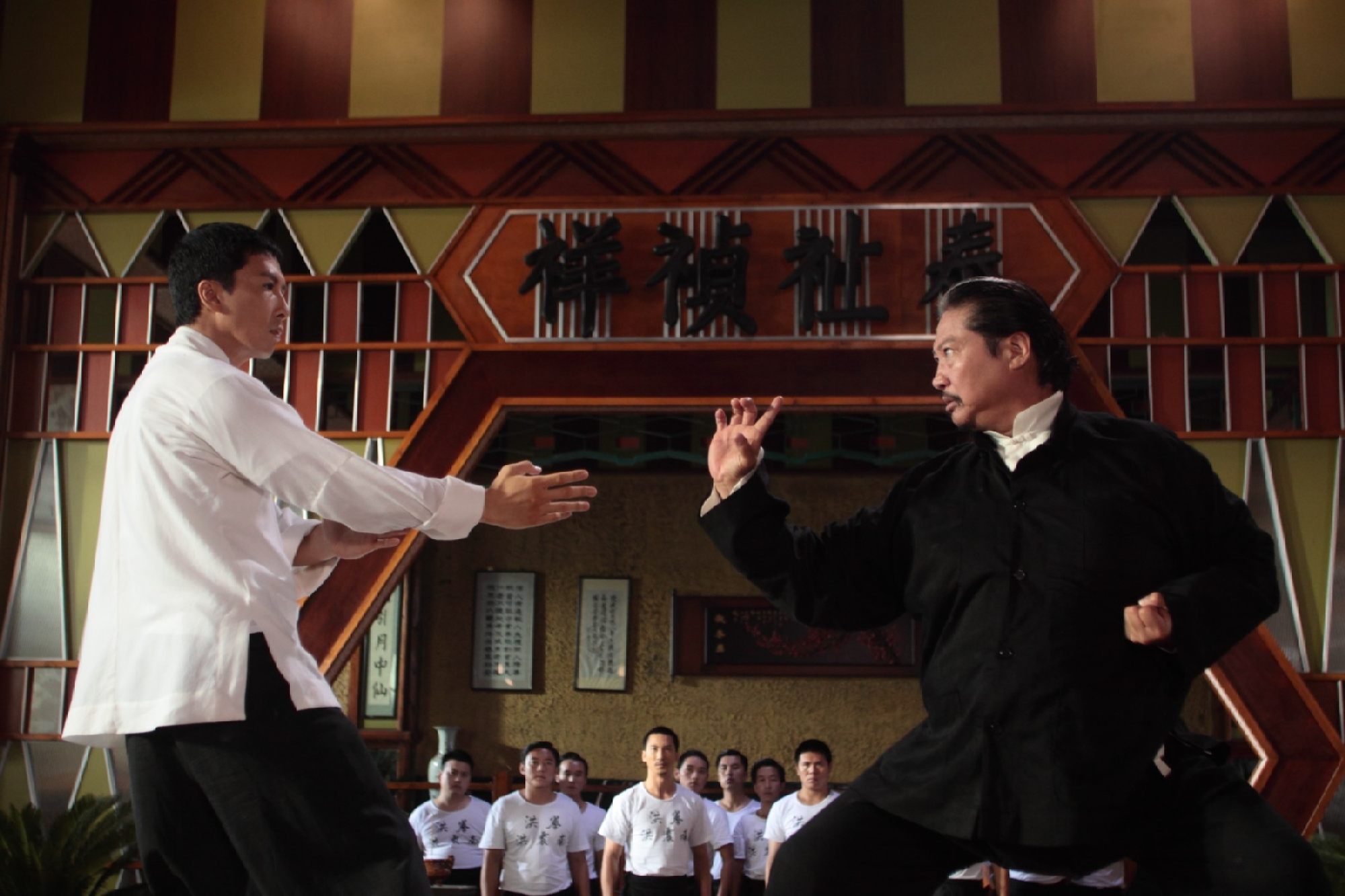
How Wilson Yip’s first two Ip Man films made Donnie Yen a superstar and the eponymous martial arts legend a hero
- For the hit Hong Kong movies Ip Man and Ip Man 2, director Wilson Yip and Donnie Yen set out to make a hero of the eponymous wing chun kung fu pioneer
- Sammo Hung’s ‘honest’ kung fu choreography, patriotism and Bruce Lee references feature in the heavily fictionalised films that made Yen and Ip household names
The four Ip Man films directed by Wilson Yip Wai-shun and starring Donnie Yen Ji-dan form one of the all-time great Hong Kong film series.
Below we take an in-depth look at the first two Ip Man films.
Ip Man (2008)
“The first film in the series was really good,” says action film expert and author of The KFM Bruce Lee Society, Carl Fox. “It was one of the first times that Ip Man had been portrayed in a film in a big way, and Donnie Yen was perfectly suited to the role of Ip Man, even though he refused to shave his hair.”
Wayne Wang’s early films and why Hong Kong frustrated the American director
In the first film, Yip and Yen tell a heavily fictionalised story about Ip’s early life in Foshan, China. Ip first shows the power of wing chun kung fu to a rogue band of martial artists, and then suffers under the Japanese occupation.
In spite of its modern production values, Ip Man unspools in the manner of an old-school kung fu movie. The storyline relies heavily on Confucian values such as maintaining a lifelong respect for your sifu (martial arts master).

Yen’s honourable and refined portrayal of Ip essentially duplicates Kwan’s portrayal of Wong, but substitutes the close-in and quick wing chun style of kung fu for Wong’s powerful hung gar style.

“The challenge for Ip Man was how to mix my character-driven storytelling with the things this brilliant action-film actor [Yen] could bring to the table,” Yip said.
Like Wong, Ip always tried to avoid violence until it was impossible to compromise further. According to Yip, the way the master would always try to calm down an opponent worried his star.
“Yen was worried that viewers would see his character as a coward, but I told him it’s not exactly like that. It’s not that he was feeble. He [Yen] needed to remember how Ip was an ordinary person who just happened to know martial arts – he was not a superhero,” Yip said.
‘I will not let Bruce Lee down’: Donnie Yen on his martial arts film career
To prepare for his role, Yen studied wing chun for nine months with Ip Man’s eldest son, Ip Chun, an adviser to the film.
Yip thought Hung was the perfect choice to choreograph his film.
Hung’s choreography is exciting, and generally avoids special effects, although it does make use of them. Hung brought the genre back down to earth after a period of CGI enhancement, which is what audiences wanted.

“The choreography was well done and very reminiscent of old school kung fu movies,” says Fox. “It stuck very much to the style of the art. I always like to see wing chun portrayed on screen, as it’s a very honest and real art to portray when it’s done authentically.”
Ip Man 2 (2010)
Aimed as much at mainland China as Hong Kong, Yip’s second Ip Man film saw the character relocated to Hong Kong.
Ip runs into trouble with other martial arts schools because he won’t play by their rules, yet ends up defending Chinese honour by bringing down a vicious British boxer in the ring.
Yip’s desire to make a patriotic film meant there were some important omissions. Notably, after the Japanese occupation of China Ip worked as a policeman for the Nationalists (Kuomintang); he fled to Hong Kong because of his involvement with the Nationalists, leaving his family behind for unspecified reasons.
Ip’s time as a Kuomintang policeman is completely ignored in the film, presumably because, in Communist Party-ruled China, it would put a dent in his credentials as a patriotic hero.
The first half of the film, which sees Ip fighting rival kung fu schools in Hong Kong, is good fun. A highlight is a tabletop bout between Yen and Sammo Hung, who plays the head of the Chinese Martial Arts Association. The bout is one of the best one-on-one martial arts scenes of the period.
Michelle Yeoh’s mentor, Jackie Chan’s boss – the many sides to Sammo Hung
The film switches in the middle to follow a storyline about Ip fighting a British boxer who claims that Chinese martial artists are no match for Western boxing. Patriotism turns to jingoism, with every foreigner in Hong Kong being depicted as evil and cruel.
“Sadly, such an attempt to stir emotions regresses the film to the 1980s and 90s, when upstanding Chinese characters rose to overcome foreign evils,” Post reviewer Clarence Tsui wrote.

Fox, a Bruce Lee expert, says he was unhappy with the portrayal of Lee in the films.
“I didn’t like it, but I rarely do like it when Lee is portrayed in a film. It’s always about showing Lee as this superhero who was always looking for a fight,” he says, noting that there are many more sides to the legend.
In this regular feature series on the best of Hong Kong cinema, we examine the legacy of classic films, re-evaluate the careers of its greatest stars, and revisit some of the lesser-known aspects of the beloved industry.
